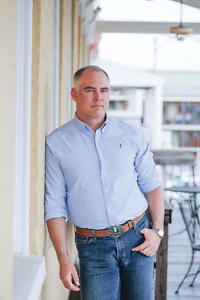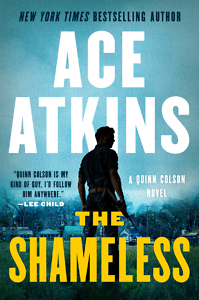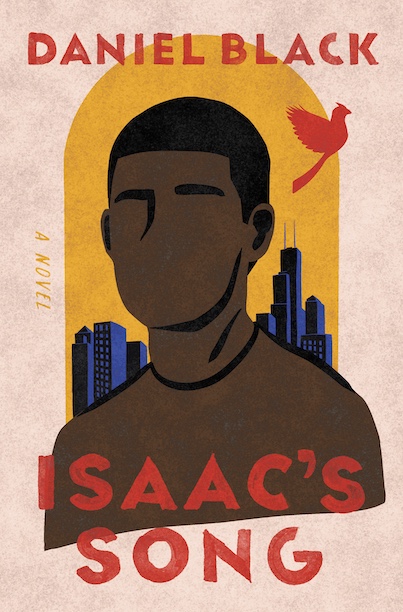Mississippi Muddling
Ace Atkins mixes populist politics, crime podcasts, and a rapping Choctaw hit man in The Shameless
Not quite halfway through The Shameless, the ninth novel in the Quinn Colson series by Ace Atkins, the hero’s sister, Caddy, goes to a honky-tonk to rescue a friend from a drinking binge. Upon entering the bar, she reflects on her larger-than-life brother, a sheriff who never seems to understand “how some folks could get weak sometimes.”

Weakness is not in Quinn Colson’s nature. In the series’ first book, the former Army Ranger came home from the deserts of Afghanistan to find fictional Tibbehah County, Mississippi, a more dangerous and corrupt place than the one he had just left. He set out to clean up the mess, and he’s been at it through nine books and counting. One early victory was Caddy, rescued from addiction and now helping to run a religious center serving the county’s poor and homeless. She’s secretly dating a younger man, son of a wealthy family that supports the center, and she is with him late one night when she gets the call summoning her to the honky-tonk.
The friend in need of a designated driver is Boom, a one-armed member of Quinn’s old unit, who’s having a hard time recovering from injuries received in the previous book. Caddy chooses not to ask her unsympathetic brother for help. “Quinn the Ranger,” she thinks, providing a succinct summary of the book’s driving force. “Quinn the damn crusading sheriff who wakes before dawn and lives on black coffee and cigars.” As with other titles in the series, The Shameless is loaded with black coffee, cigars, and pages of damn crusading.
That alone might not sustain readers through nine books, were it not for the extra rewards that Atkins provides. In addition to the Colson series, the Mississippi native and former Auburn football star wrote seven best-selling Spencer novels after the 2010 death of Robert B. Parker, as well as several true crime novels set in the South and a fair amount of magazine nonfiction. His grounding in journalism and true crime lets Atkins populate each new book with characters who mirror real-world counterparts. A keen ear for (mostly profane) dialogue and an attraction to odd police reports combine to give Atkins a penchant for comically bizarre villains.
“Weird is what I like to write,” Atkins told Chapter 16 in a 2015 interview, and weird is keenly on display in The Shameless. Among the rogues’ gallery are a pair of Choctaw hit men — one old and stern-faced, the other a young DJ with 5,000 fans of his “Indian Rap” on YouTube — an upwardly mobile businesswoman who runs a truck-stop prostitution ring, and a crooked politician bound for the governor’s office with an uncomfortably familiar populist rant. His speeches draw gangs of militaristic young men waving red bandanas that might as well bear swastikas.
 At the center of it all sits a low-level thug in Quinn’s jail, stuffing down Sonic burgers while awaiting federal prosecutors, hoping to angle for a deal. Picture a tattooed, racist, and misogynist version of Danny McBride in East Bound and Down. This criminal, Taggert, was involved in delivering Boom’s injuries, yet he may be Quinn’s only hope for catching the bigger fish in the stinking barrel that is Tibbehah County.
At the center of it all sits a low-level thug in Quinn’s jail, stuffing down Sonic burgers while awaiting federal prosecutors, hoping to angle for a deal. Picture a tattooed, racist, and misogynist version of Danny McBride in East Bound and Down. This criminal, Taggert, was involved in delivering Boom’s injuries, yet he may be Quinn’s only hope for catching the bigger fish in the stinking barrel that is Tibbehah County.
Taggert would have remained safely on the run, but for an untrustworthy stripper. “I had a lot of things going for me,” the jailed criminal laments. “Nice strip club, truck stop, and a trucking company, before little Miss Twilight gave me a private show. You know the dumbest damn part of it?” he says to Quinn in a rare moment of relatively profanity-free honesty. “I thought that little girl loved me.”
A young New York crime podcaster and her blue-haired producer are added to this already rich mix. The two are looking into the mystery of a high school student who went missing back when Quinn was a boy. As the young strangers interview residents and begin getting closer to the truth of their cold case, they inevitably perturb the very hot case Quinn Colson is pursuing.
The result is a slow build toward a violent climax that only an author who has walked in Robert B. Parker’s gumshoes could assemble. The good guys finally mark a win, and yet the damn crusading is far from over.
Michael Ray Taylor chairs the communication and theatre arts department at Henderson State University in Arkadelphia, Arkansas. He is working on a book about Tennessee caves and cavers.


